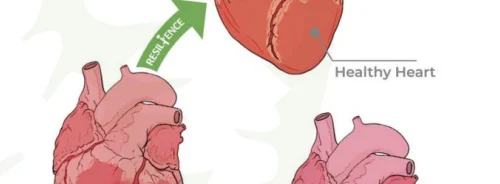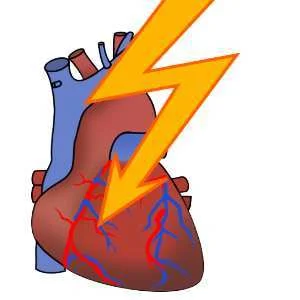According to a study published in the Journal of Physiology, sudden cardiac death caused by cardiac arrhythmia can be triggered by changes in body temperature.
Sudden cardiac death can have several causes including inheritable mutations in our DNA affecting structure and function of proteins in the heart. During the study, Simon Fraser University professor Peter Ruben in the Department of Biomedical Physiology and Kinesiology (BPK) and fellow scientists found that subjecting proteins that underlie electrical signalling in the heart to conditions that are similar to the stress of exercise, in some cases, temperature, can cause changes that trigger arrhythmia.
Prof. Ruben explains that when muscle cells in the heart contract rhythmically, the heart pumps blood throughout the body. When this rhythm is disrupted by an arrhythmia, the heart is unable to distribute blood. This could lead to sudden cardiac death.
He adds: "The electrical signal behind muscle contraction is produced by tiny protein molecules in the membrane of our heart cells. Temperature fluctuations modify the way all proteins behave, but some DNA mutations can make proteins especially sensitive to changes in temperature."
The SFU team found a protein that is more sensitive to temperature than normal. When the temperature of the body goes up either during exercise or goes down during sleep, this protein stops functioning normally. The disrupted protein function causes the electrical signal of the heart to become erratic which in turn triggers arrhythmia and sudden cardiac death.
Although the DNA mutation that creates these proteins is rare, the results can often be deadly if combined with another arrhythmia trigger such as changes in the acid content of the blood through exercise or sleep.
Previous studies have shown that temperature changes can trigger seizure disorders. Cardiac arrhythmias can also behave like seizures and may even share the same triggers.
Prof. Ruben points out that with this new information, people can examine their history and if sudden cardiac death is part of their family history or if they suffer from unexplained fainting, they could seek medical advice. It may be possible to prevent cardiac arrhythmia in such patients by using ECG, genetic screening and lifestyle management strategies at the right time.
Source: Simon Fraser University
Image Credit: Pixabay










